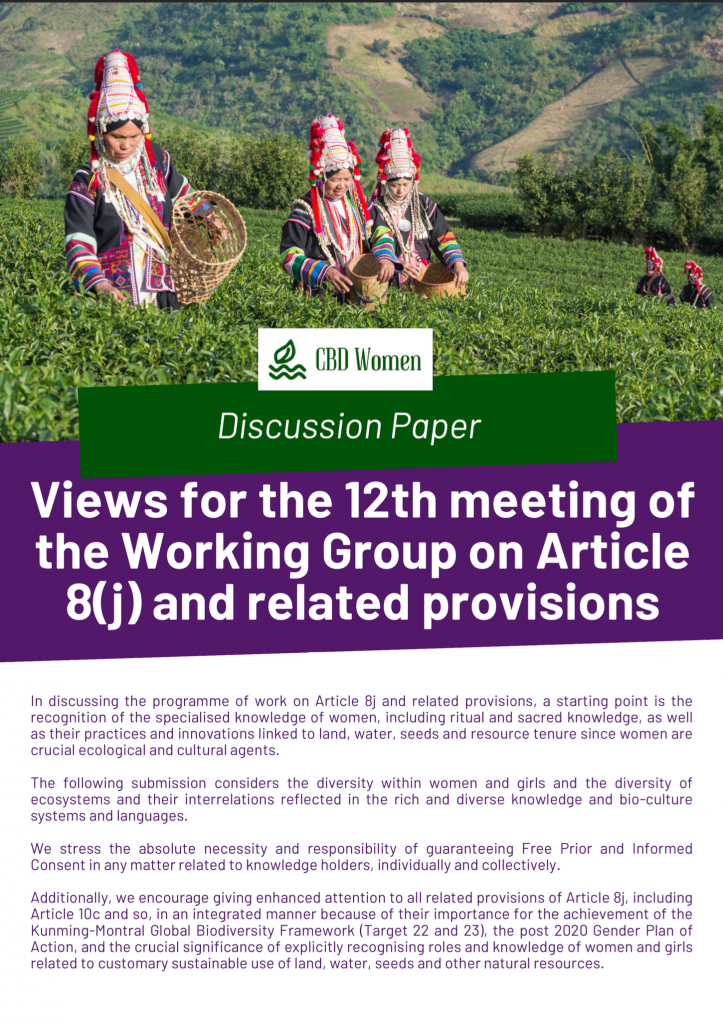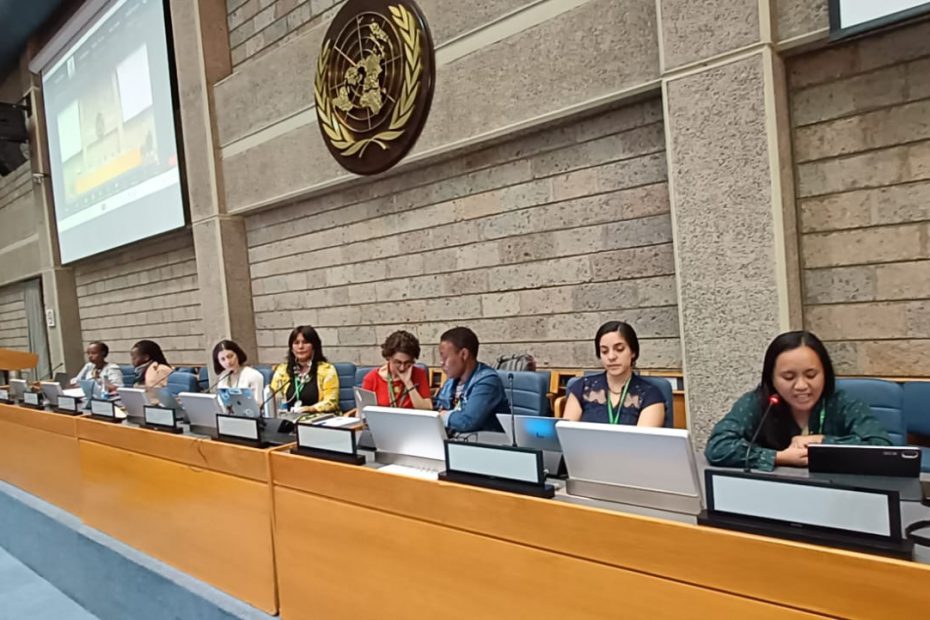During the Twelfth meeting of the Ad Hoc Open-ended Intersessional Working Group on Article 8(j) and Related Provisions of the Convention on Biological Diversity and First meeting of the Ad Hoc Open-ended Working Group on Benefit-sharing from the Use of Digital Sequence Information on Genetic Resources, CBD Women’s Caucus will present a discussion paper titled ‘Views for the 12th meeting of the Working Group on Article 8(j) and related provisions‘.
The discussion paper talks about the specialised knowledge of women, including ritual and sacred knowledge, as well as their practices and innovations linked to land, water, seeds and resource tenure since women are crucial ecological and cultural agents. It will also consider the diversity within women and girls and the diversity of ecosystems and their interrelations reflected in the rich and diverse knowledge and bio-culture systems and languages.
The discussion paper will further delve into the below topics in depth,
- In-depth dialogue on the role of languages in the intergenerational transmission of traditional knowledge, innovations and practices.
- Role of women in transmitting knowledge and value systems.
- Gendered specialised traditional ecological knowledge.
- Language and knowledge preservation.
- Use of new forms and technologies for knowledge transmission.
- Possible institutional arrangements and their modus operandi for the implementation of Article 8(j) and other Provisions.
- Progress in the implementation of the programme of work on Article 8(j) and related provisions.
- Joint Programme of Work on links between biological and cultural diversity: Review and update the four indicators on traditional knowledge.
- INDICATOR A: Trends of linguistic diversity and numbers of speakers of indigenous languages.
- INDICATOR B: Trends in land-use change and land tenure in the traditional territories of indigenous and local communities.
- INDICATOR C: Trends in the practice of traditional occupations.
- INDICATOR D: Trends in the degree to which traditional knowledge and practices are respected through the full integration, participation and safeguards in national implementation of the Strategic Plan.


